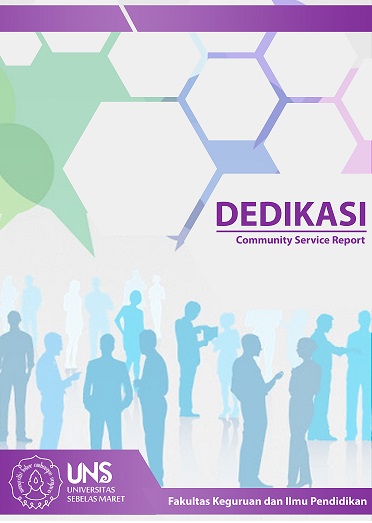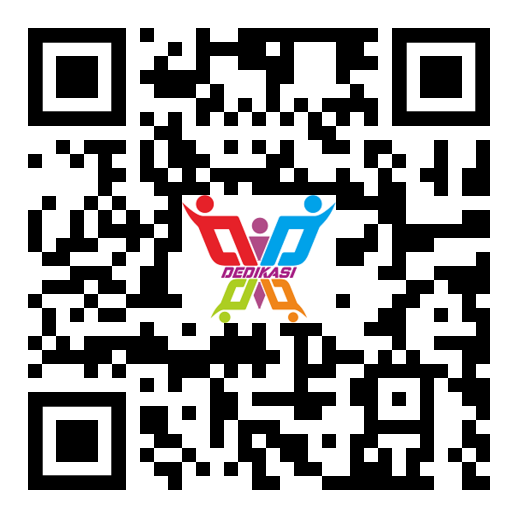| Journal title | DEDIKASI: Community Service Reports |
| Initials | DEDIKASI |
| Frequency | Twice a year on January and July |
| DOI | Prefix 10.20961 |
| Online ISSN | 2715-5706 |
| Print ISSN | -- |
| Editor-in-chief | Prof. Nurdin |
| Publisher | Faculty of Teacher Training and Education, Universitas Sebelas Maret, Surakarta |
DEDIKASI: Community Service Reports publishes reports on the research dissemination and community services. It is our interest to elaborate the method applied during the research dissemination and the implications of the implementation to the process, understanding, and community social economic development. It is expected that the journal could become a publication outlet for meaningful information about community services activities especially to the readers who want to conduct, improve, or create novel community service activities. This journal is published by the Faculty of Teacher Training and Education, Universitas Sebelas Maret, Surakarta Indonesia.The journal will be published twice in a year in January and July. Manuscript submission is all year round.

Starting from Volume 8, Issue 1 (2026), DEDIKASI has upgraded its system from OJS 2 (this website) to OJS 3 (https://journal.uns.ac.id/dedikasi/). Please note that old accounts on the OJS 2 system (this website) are different and cannot be used in the new OJS 3 system. For submission purposes, authors are required to create a new account on the new website.
Mulai Volume 8, Issue 1 (2026), DEDIKASI menggunakan sistem penerbitan baru dari OJS 2 (website ini) menjadi OJS 3 (https://journal.uns.ac.id/dedikasi/). Perlu diperhatikan bahwa akun lama dalam sistem OJS 2 (website ini) berbeda dan tidak dapat digunakan di sistem OJS 3 yang baru. Untuk pengiriman naskah, penulis diharuskan membuat akun di website yang baru.
Announcements
New Manuscript Template |
|
| Manuscript template for 2023 Issues | |
| Posted: 2022-10-27 | More... |
Vol 4 Issue 2 2022 has been published. |
|
| Publication announcement | |
| Posted: 2022-10-13 | More... |
DEDIKASI: Community Service Report Teakreditasi SINTA 4 |
|
| Pengumuman terakreditasi | |
| Posted: 2022-06-07 | More... |
| More Announcements... |







3.png)



1.png)








